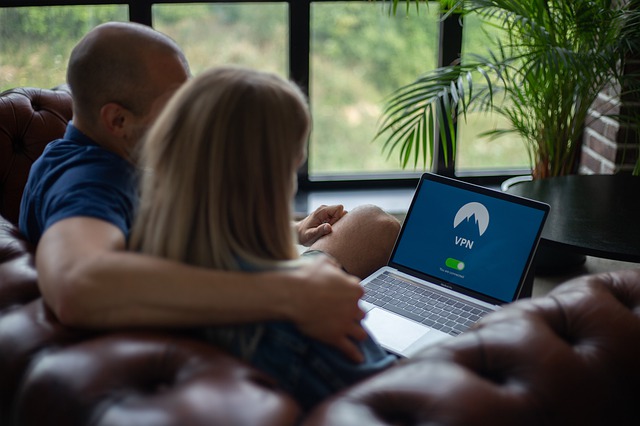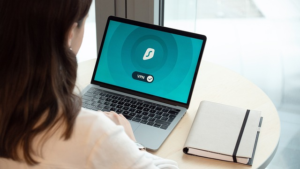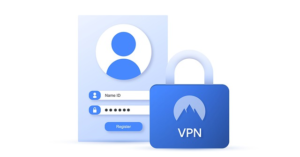
Editorial Note: We earn a commission from partner links on Forbes Advisor. Commissions do not affect our editors’ opinions or evaluations.
A VPN, or virtual private network, allows you to safely browse the web by encrypting your data and hiding your IP address, making it seem as though you are browsing from another location entirely.
There are numerous reasons to use a VPN, including data privacy, security when working remotely and the ability to access geographically-restricted content. Don’t let their reputation intimidate you. With a little know-how, you can choose and set up a VPN painlessly.
How to Choose a VPN
Not all VPNs are created equally. Here’s how to pick one that’s a good fit for you.
Identify Must-Have Features
You want a VPN that accommodates the types of devices you want covered—your phone, laptop and smart tv—as well as the amount of devices you want covered. Most premium services offer about five simultaneously connected devices under a single plan, but some allow you to connect an unlimited number of devices. You should attempt to connect all devices within your network to a VPN, in particular those you plan on using on public Wi-Fi networks.
Ideally the VPN you choose will offer fast speeds, 256-AES level encryption and access to VPN servers in multiple locations. Your VPN provider shouldn’t log or collect your data, either. The point of a VPN is privacy.
Figure Out Your Price
A full-coverage, pay-as-you-go plan with the features outlined above will cost approximately $10 to $15 a month. If you buy a full year or more in advance, those prices will go down. However, we suggest trying out a VPN before buying a full-year plan, checking to make sure that the speeds and features of that particular service work for you.
While you may be tempted to use a free VPN service, you unfortunately get what you pay for. Free VPN services need to recoup their operating costs and often do so by selling user data, thereby removing privacy benefits. There are a few legitimate free services but most are trial versions of paid VPNs with less features or time-limited service. If you want to get serious about your internet security, a paid model is best.
Lean on Third-Party Research
While you may know your feature and pricing needs, you can still get lost in the numerous VPN offerings online. To figure out what each VPN offers and which services are recommended by security experts, lean on trusted advice. We offer a guide, The Best VPNs in 2021, that breaks down costs and features of different VPN providers and the pros and cons of each service. You can use guides like these to do the tough brand research for you, so you can start browsing securely quicker.
How to Set Up a VPN
If you’re setting up a VPN to browse the internet while at home—a good step for protecting your data from your internet service provider—you can set up through your Wi-Fi router and protect all devices that are on your home network at once. However, if you’re hoping to get a VPN to protect your data during public browsing and on-the-go usage of your laptop or smartphone, you’ll need VPN software on those devices.
The simplest way to set up a VPN is to download an app of your choice via your internet browser or smart device’s app store, then let it set up itself. Most VPN apps will automatically configure on your devices after downloading, making setup quick and easy for anyone.
However, we’ve also outlined the steps for manual setup for your macOS, Windows, Android and iOS devices below.
Manual VPN Setup for MacOS
- After downloading a VPN app of your choice via the App Store or online, click into the Apple Menu on the top of your computer.
- From there, head into “System Preferences” and then “Network.”
- Add your VPN by clicking on the plus sign in the bottom left corner and filling in details for your chosen network into the fields of “Interface” and “Service Name.”
- Create a new VPN network and fill in your “Server Address,” “Remote ID” and “Local ID.”
- Enter “Authentication Settings” and add your username and password.
- Connect your VPN and start browsing safely.
Manual VPN Setup for Windows
- After downloading a VPN app of your choice via the Windows Store or online, move into “Settings.” From there click into “Network” and then “VPN.”
- Click “Add a VPN” and fill out the fields for “Server Name,” “VPN Type” and your account information (given to you by your VPN provider of choice). Then save your VPN.
- Go back into “VPN,” click on your newly added account and press “Connect.”
Manual VPN Setup for Android
- After downloading a VPN app of your choice from your phone’s application store, move into your “Settings” and from there click “Network & Internet” then “Advanced” and, finally, “VPN.”
- Click “Add VPN” and fill out your VPN’s “Name” and “Server” and then save the information.
- Click on your newly added VPN profile and fill out the “Account” and “Password” fields then click “Connect.”
Manual VPN Setup for iOS
- After downloading the VPN via the App Store, move into the “Settings” button on your phone and scroll down to “General.”
- Find the VPN submenu and press “Add VPN Configuration.”
- Select the correct “Type” of VPN you have installed then head back to input its details.
- You will fill in your VPN’s “Description” and “Server” as well as your “Account” and “Password.”
- Click done and toggle your new profile to “on” and the VPN will begin running.
Featured Partners
Monthly Pricing
$11.95/Month
Monthly Pricing
$8.32/Month
Monthly Pricing
$3.33/Month
When to Use Your VPN
Once you’ve chosen and installed your VPN, you may wonder when to use it. Ideally, you should try and connect to your VPN whenever possible.
On home networks, a VPN will protect your IP address and internet browsing activity by hiding your identity from your ISP; from the apps and sites you visit; and from the companies that your ISP is selling your data to. Your online activity won’t be fully obscured but your identity (via your IP address) will be. A VPN at home isn’t a full-proof measure for full anonymity, but it will provide a base level of data security.
On external Wi-Fi networks, a VPN will protect you from internet strangers by encrypting your data and your identity. Whether connecting to Wi-Fi at Starbucks or your airport, a VPN can help keep your data safe. This VPN usage is more critical than at home, as public Wi-Fi is less secure and can easily enable data theft and criminal activity.
That said, sometimes slow operating speeds and app connectivity issues make browsing on your VPN difficult. In cases such as these, it’s OK to continue browsing. However, you should recognize that your data and activities are less protected than they would be under a VPN.
In public, this means it would be best not to do any particularly sensitive online activities such as banking or dealing with confidential documents. At home, this means recognizing that your ISP can connect your online activity with your real IP address.
Frequently Asked Questions (FAQs)
VPNs provide data security, obscuring your data and identity from ISPs, internet snoops, companies and government agencies alike. In a world where many activities are done online such as shopping or banking, a VPN provides peace of mind.
While you may be tempted to use a free service, few offer the full data-privacy and malware-protection of paid services. Many free services sell their user data thereby diminishing the greatest value of VPNs: privacy.
Do I have to manually set up my VPN?
Not always. Most VPN apps offer easy installation processes that automatically add themselves to your phone or computer. Manual installation is easy, but automatic installation is even easier.
Yes, like any software, VPNs are susceptible to hacking. They aren’t foolproof security measures. VPN companies themselves have been the target of massive hacks. The more information the VPN company stores on you, the more susceptible you are to data breaches.
Source: https://www.forbes.com/advisor/business/software/how-to-set-up-a-vpn/


